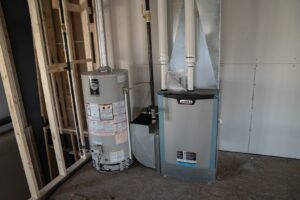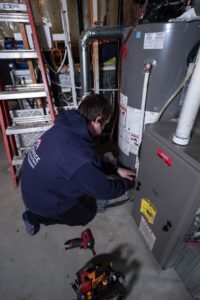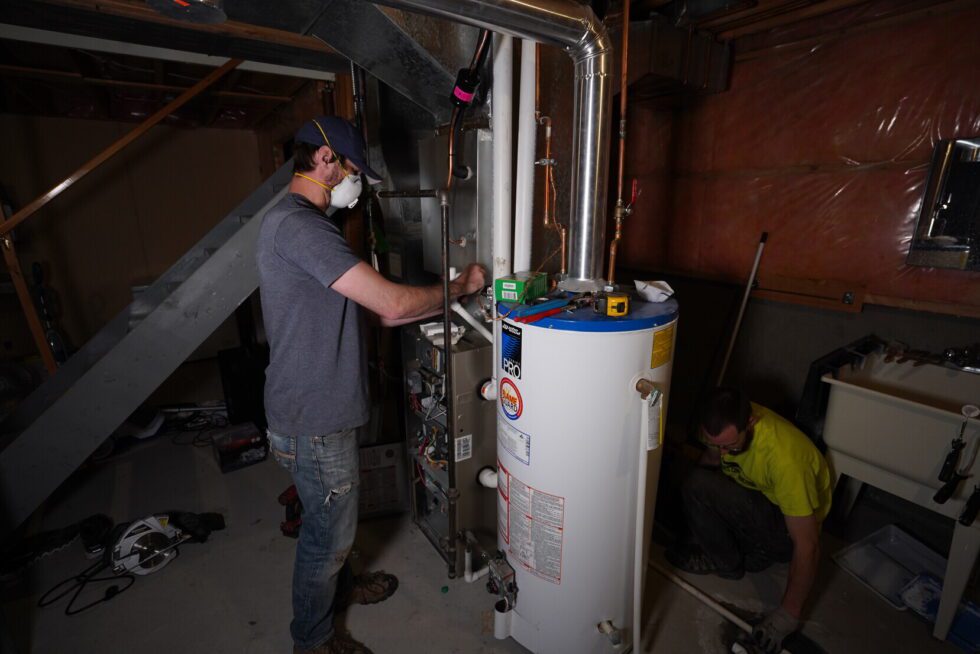Gas Water Heater: Combining Efficiency and Reliability for Home Heating
A gas water heater is a cornerstone of home comfort for many, providing a reliable and efficient source of hot water. Preferred for their quick heating ability and cost-effectiveness, these heaters are an integral part of daily life, facilitating everything from warm showers to dishwashing. This article will explore the workings of gas water heaters, their advantages, and important considerations for homeowners, ensuring a comprehensive understanding of these essential household appliances.
The Workings of a Gas Water Heater: A Blend of Simplicity and Efficiency
At the heart of a gas water heater’s operation is the combustion of natural gas or propane. This combustion heats the water stored in the tank, making it readily available for use. Gas water heaters typically have a burner at the bottom of the tank and a chimney running through the center, allowing for efficient heat transfer. When a hot water tap is turned on, cold water enters the tank at the bottom, gets heated by the burner, and rises to the top of the tank, ready for use. This continuous cycle ensures a constant supply of hot water, a critical feature for larger households or higher demand scenarios.
.

.
Advantages of Opting for a Gas Water Heater
Gas water heaters are known for their rapid heating capability, making them ideal for homes with significant hot water needs. They can heat water faster than their electric counterparts, providing immediate comfort, especially in cold weather. Additionally, for regions where gas is more affordable than electricity, gas water heaters can offer substantial savings on energy bills. They are also praised for their performance during power outages, as they do not rely on electricity to operate, ensuring continuous hot water supply even during blackouts.
Maintenance and Safety: Ensuring Optimal Performance
While gas water heaters are generally reliable, regular maintenance is crucial for safe and efficient operation. Homeowners should perform routine checks, such as inspecting the burner for proper ignition and flame, ensuring the venting system is clear and functioning correctly, and checking for any signs of gas leaks. It’s also important to regularly flush the tank to remove sediment build-up, which can impact efficiency and longevity. Professional annual inspections are recommended to assess the condition of the anode rod, pressure relief valve, and other critical components.
.

.
Choosing the Right Gas Water Heater for Your Home
Selecting the appropriate gas water heater involves several considerations. The size of the heater should match the household’s hot water demand, factoring in the number of occupants and simultaneous usage needs. Energy efficiency is another crucial aspect, with many modern gas water heaters offering improved efficiency ratings and reduced greenhouse gas emissions. Homeowners should also consider the installation requirements, including adequate venting and gas line accessibility, to ensure compliance with safety standards and building codes.
Conclusion: Embracing the Benefits of Gas Water Heating
Gas water heaters remain a popular choice for many homeowners due to their rapid heating, cost-effectiveness, and reliability. Understanding their operation, benefits, and maintenance needs allows homeowners to make informed decisions about their hot water systems. With proper care and consideration, a gas water heater can provide years of efficient and dependable service, contributing significantly to the comfort and convenience of home life. Book an appointment with Pro Service Mechanical today!


